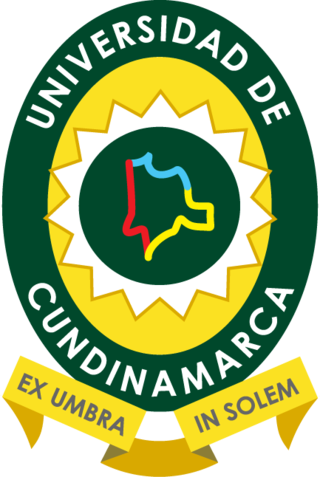Top Qs
Timeline
Chat
Perspective
University of Cundinamarca
Public university in Cundinamarca, Colombia From Wikipedia, the free encyclopedia
Remove ads
The University of Cundinamarca (Spanish: Universidad de Cundinamarca), is a public, departmental university located primarily in the city of Fusagasugá in Cundinamarca, Colombia. The university has satellite campuses across the department in the cities of Chía, Chocontá, Facatativá, Girardot, Soacha, Ubaté, and Zipaquirá.
This article has multiple issues. Please help improve it or discuss these issues on the talk page. (Learn how and when to remove these messages)
|
Remove ads
History
Summarize
Perspective
The main campus of the University of Cundinamarca was established in the early 1970s in the city of Fusagasugá, in the Sumapaz Province of Cundinamarca. The institution originated through Ordinance No. 045 of December 19, 1969, which created the Instituto Técnico Universitario de Cundinamarca (ITUC). According to the ordinance, the ITUC was to provide higher education to individuals holding a secondary school or teaching diploma, giving priority—up to 90%—to students from the Department of Cundinamarca.
Academic activities began on August 1, 1970, at the Fusagasugá campus with three initial programs: Agricultural Technology, Administrative Technology, and Executive Secretarial Studies. In 1990, the ITUC applied to become a full university. This recognition was granted by Resolution No. 19530 of December 30, 1992, issued by the Ministry of National Education, formally integrating the institution into the State University System (Sistema Universitario Estatal, SUE).
In 2007, artist and designer Pedro Enrique Espitia Zambrano developed the university’s visual identity, including its logo, slogan, flag, and other symbolic elements.
As of 2022, the rector of the university was Adriano Muñoz Barrera. In 2016, the institution employed 714 teaching staff, including 366 with master’s degrees and 23 with doctorates. Of these, 232 held full-time appointments. In total, 916 teaching contracts were issued that year.[6]
As of 2025, Adriano Muñoz Barrera remained in office as rector. However, his re-election was marred by controversy. Reports allege that the University Council convened an extraordinary session during a non-academic vacation period, without the participation of the presidential and departmental delegates. According to these accounts, invitations were sent late at night, just hours before the session was held the following day.[7]
Remove ads
See also
References
External links
Wikiwand - on
Seamless Wikipedia browsing. On steroids.
Remove ads

